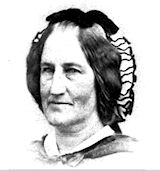
—All classes of citizens of Virginia are called upon to contribute their quota of forage for Beauregard’s army, and with those who are forgetful of their obligations, the general says that “constraint must be employed.”— (Doc. 115.)
—The Missouri State Convention, in session at Jefferson City, passed a resolution this morning, by a vote of 65 to 21, declaring the office of President, held by Gen. Sterling Price at the last session of the Convention, as vacant. Gen. Robert Wilson, the former Vice-President, was unanimously elected President. He is a Union man.—A motion was made to declare the office of doorkeeper vacant, as the present incumbent was elected as a Union man, but has since been editing a secession paper.—Uriel Wright made a violent disunion speech, denouncing the Administration as revolutionary, desperate, and usurping unwarrantable powers, and denouncing the Union leaders at St. Louis and the State. The matter was referred to a committee of three. —A committee of seven—one from each Congressional district—was elected, whose duty it is to report to the Convention what action they deem it advisable to take in the present disturbed condition of the State. The following gentlemen were elected, all being Union men, from the seven Congressional districts : Messrs. Broadhead, Henderson, W. P. Hall, W. Douglas, Hendricks, and Bogy.—Philadelphia Press, May 21.
—Lieutenant-governor Arnold of Rhode Island issued a proclamation, paying a tribute to the dead soldiers of that State and calling for the enlistment of more men.—A large and spirited meeting was held this morning in Market Square, Providence, to express the determination of Rhode Island, to redouble its exertions in support of the Government. Mayor Knight presided, and eloquent speeches were made by Hon. L. A. Jenckes, Rev. Dr. Sears, Hon. C. A. Updyke, Bishop Clark, Rev. Dr. Caswell, Bishop McFarland, A. Payne, Governor Hoppin, Hon. Thos. Davis, P. A. Sennott, Dr. Wayland, ex-Mayor Rodman, Rev. Dr. Hall, Rev. Mr. Keyers, and Governor Arnold. -{Doe. 11C.)
—Tns Third and Fourth Regiments of Massachusetts Volunteers, who have been on duty at Fortress Monroe, Va., returned to Boston.— N. Y. Times, July 24.
—Major General McClellan, under instructions from the War Department at Washington, this morning left Beverly, Va., to assume the command of the Federal forces on the Potomac in Virginia, his departure was announced in the following order:—
__________
Headquarters Department of the Ohio
and Western Virginia,
Beverly, July 22, 1861
In compliance with instructions which have been received from the War Department, the undersigned hereby relinquishes the command of the army of occupation of Western Virginia and the Department of Ohio. The same devolves upon Brigadier-General Rosecrans, United States Army.
Geo. B. McClellan, Major-General.
(illegible) Williams, Major and Act. Asst. Adjutant-General.
—Cincinnati Gazette, July 25.
__________
—Caleb Lyon of Lyonsdale, presented to Mrs. Lincoln at Washington, a finely-wrought silk flag captured by the Zouaves from a Louisiana Regiment. The flag was 6 or 7 feet long, ln the union was an embroidered cotton bale, with the name of the regiment—”Tensas Rifles.” —Louisville Journal, July 26.
—General Banks requested the Massachusetts Sixth Regiment, at the Relay House, whoso time had expired, to remain in the service ten days longer, and the regiment, as one man, cheerfully acceded to his request. Among the first to go to the defence of their country’s honor, the gallant Sixth will be the last to leave the post of danger or of duty while their country needs their aid. All honor to them!—National Intelligencer, July 20.
—The First Regiment of the Excelsior Brigade, N. Y. S. V., under the command of Col. Daniel E. Sickles, left Staten Island, N. Y., for the seat of war.—N. Y. Times, July 23.
—The Twelfth Regiment Massachusetts Volunteers under the command of Colonel Fletcher Webster, left Boston to-night for the seat of war. The streets along their line of march were densely thronged. It was the occasion of the greatest demonstration since the reception of Daniel Webster, in 1832.—Boston Transcript, July 24.
—The Twenty-Third Regiment of Pennsylvania State Militia returned to Philadelphia from the seat of war, their term of enlistment having expired on the 21st. The regiment is composed entirely of citizens of Philadelphia.— Philadelphia Press, July 24.
—Doctor Belt of Prince Georges County, Maryland, was arrested at Washington, D. C, on a charge of uttering treasonable language against the Government, he would have been hung by the mob, but for the active interference of army cavalry officers, a squad of whom assisted in taking him to jail. Henry Banon, and J. D. Catlin of Georgetown, were also arrested and jailed on a charge of conspiring against the Government.—National Intelligencer, July 24.
—Much severity is displayed against General Patterson, for not continuing the pursuit of the rebel General Johnston, and preventing his junction with General Beauregard at Manassas. General Patterson, in a letter from Harper’s Ferry, says :—”General Johnston retreated to Winchester, whore he had thrown up extensive intrenchments and had a large number of heavy guns. I could have turned his position and attacked him in the rear, but he had received largo reinforcements from Mississippi, Alabama, and Georgia, a total force of over thirty-five thousand Confederate troops, and five thousand Virginia Militia. My force is less than twenty thousand, nineteen regiments, whose term of service was up or will be within a week. All refused to stay one hour over their time, but four, viz.: two Indiana Regiments, Frank Jarrett’s, (the Eleventh Pennsylvania,) and Owen’s, (the Twenty-Fourth Pennsylvania.) Five regiments have gone home. Two more go to-day, and three more to-morrow. To avoid being cut off with the remainder, I fell back and occupied this place.”—(Doc. 117.)




















